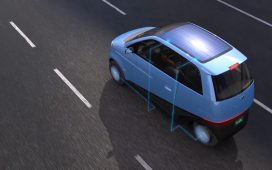Older drivers face significantly higher bills under major new road tax changes.
Vehicle tax rules were overhauled by the DVLA from April 1, affecting how much drivers are charged.
Those who buy new cars, along with electric vehicle (EV) owners, were both in line for a substantial cost increases.
READ MORE: British Gas says switch can knock up to £546 off energy bills
According to price comparison website Go.Compare, ‘baby boomers’ – those born between 1946 and 1964 – will be most impacted by the changes the most.
The Express reports that this is due to them tending to drive older, highly polluting petrol or diesel cars which are now subject to higher rates.
Go.Compare claimed this generation will face a collective additional cost of £40.5 million in Vehicle Excise Duty (VED) from this year.
A spokesperson said: “Baby boomers will be the most impacted of any generation.
“Drivers from this generation who buy a new car during this period will pay an additional £40.5 million in VED compared to last year if buying habits remain the same.”
Go.Compare’s survey found that just six per cent of baby boomers drive either a battery electric or hybrid electric car, compared to 11 per cent of millennials and nine percent of Gen X.
A tax exemption that previously applied to all electric vehicles in the UK was scrapped as of April 1, meaning EV drivers now pay the same flat rate of £195 per year as petrol, diesel or hybrid car owners.
Those who buy new EV will also need to pay for their road tax as all zero-emission models were now subject to a £10 charge for the first year it’s registered on the UK’s roads.
However there will be a further expense if the new electric model has a retail price of more than £40,000.
Owners will then also have to pay an expensive car supplement of £425 from years two to six, increasing the total charge to £620.
DVLA changes weren’t just limited to electric cars , as new car buyers of any model are now likely to pay more for their tax.
A vehicle excise duty (VED) charge applied to new models is based on the amount of carbon dioxide the model produces, with all rates increasing to try and encourage motorists to choose a greener car.
A £100 tax increase has been introduced for plug-in hybrid models, as the rate buyers were charged has rose to £110 for the first year.
Petrol and diesel car buyers were more likely to be impacted by the changes as many of the tax bands have doubled.
This is where older drivers will be most affected as they were more likely to be driving a petrol or diesel car, which are now subject to higher tax rates.
Motorists purchasing a new petrol-powered supermini, which produces between 111 and 130g/km of carbon dioxide – such as a Vauxhall Corsa or Toyota Aygo X – would now pay £440, rather than £220.
Models producing more than 255g/km of carbon dioxide were the worst affected by the tax changes as the charge applied to supercars and luxury SUVs has doubled to £5,490.






